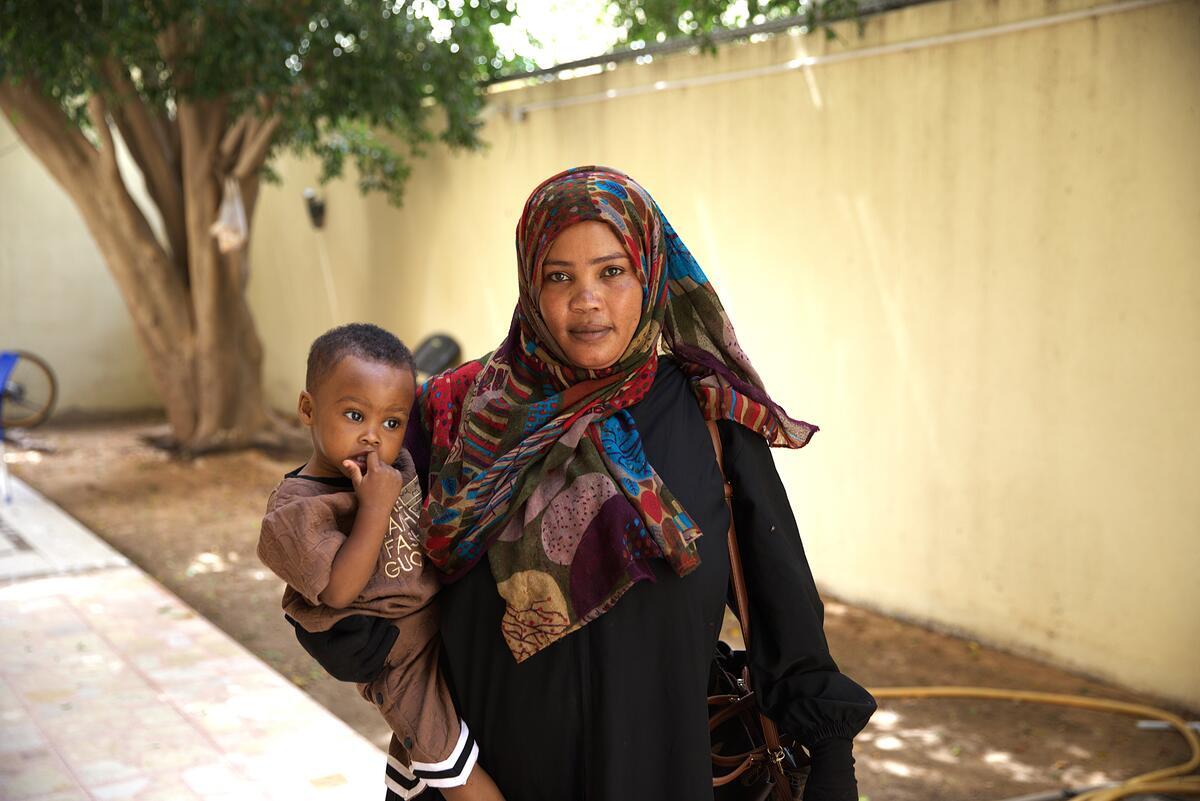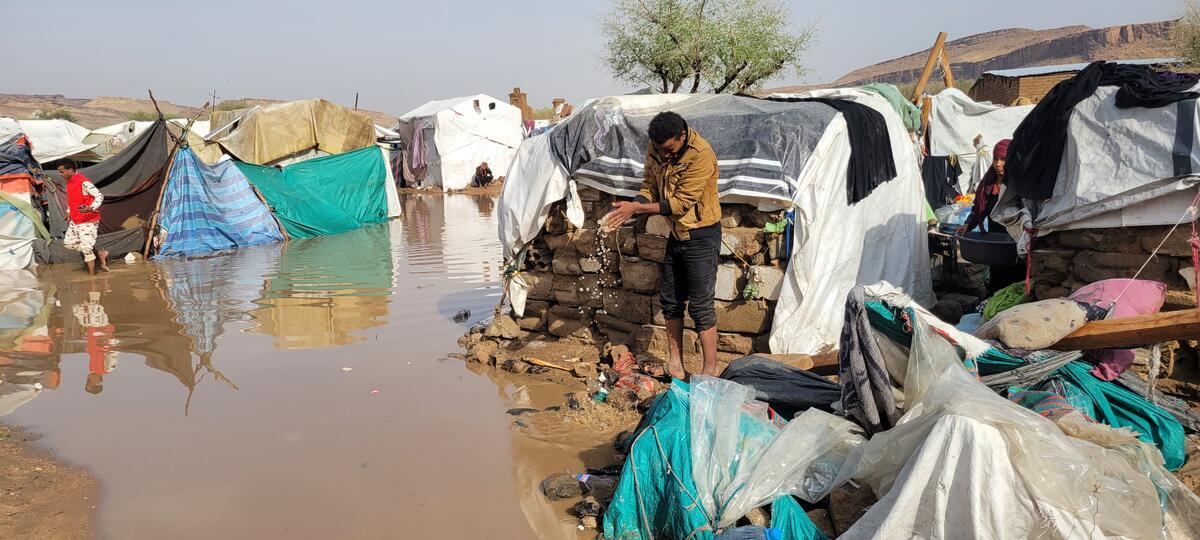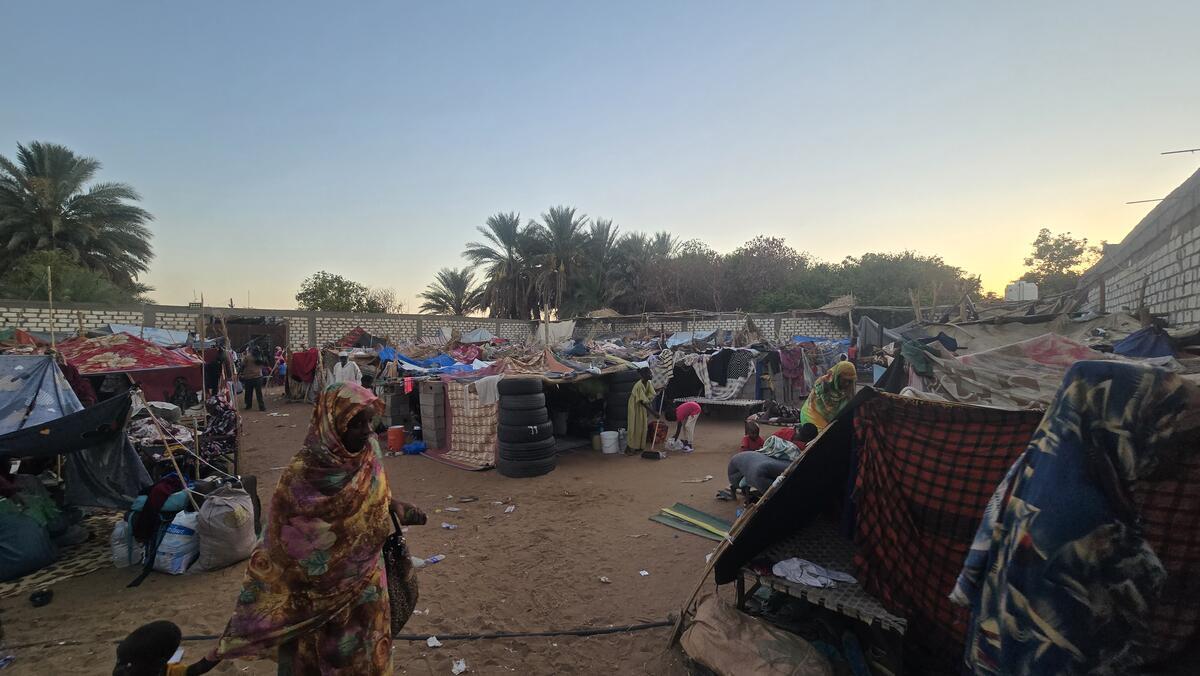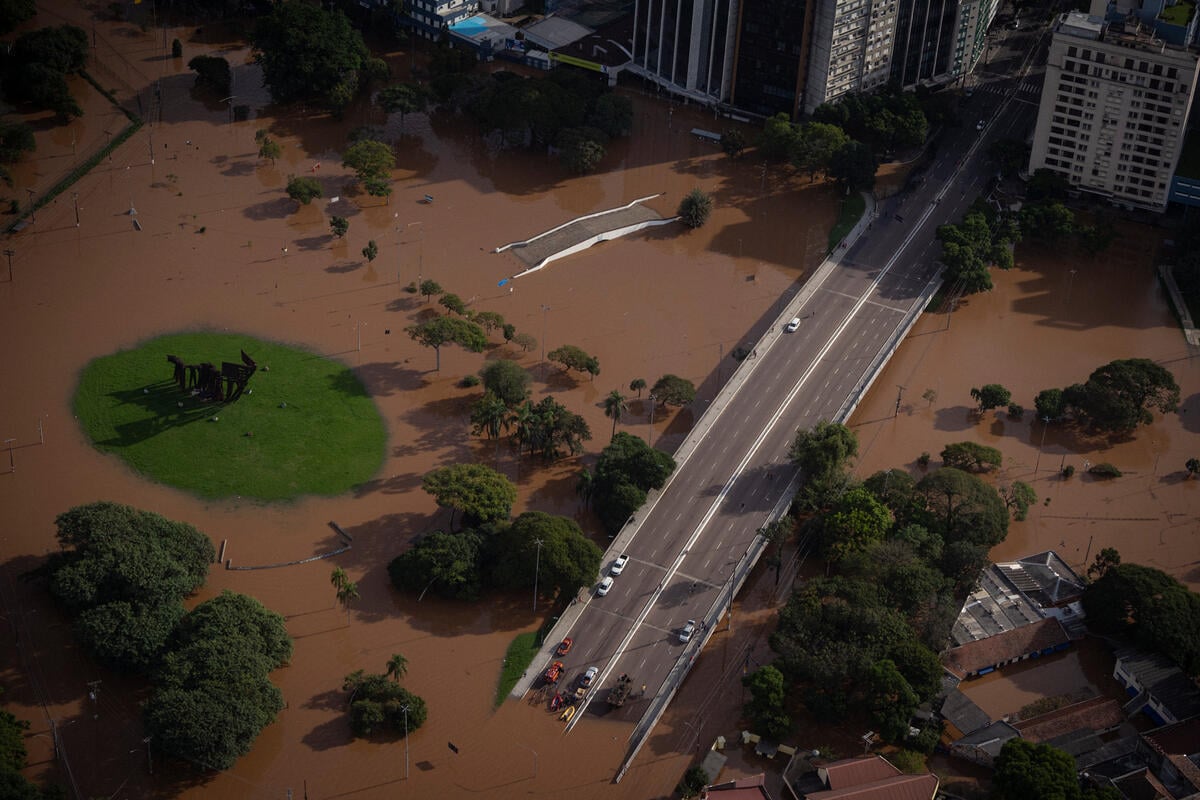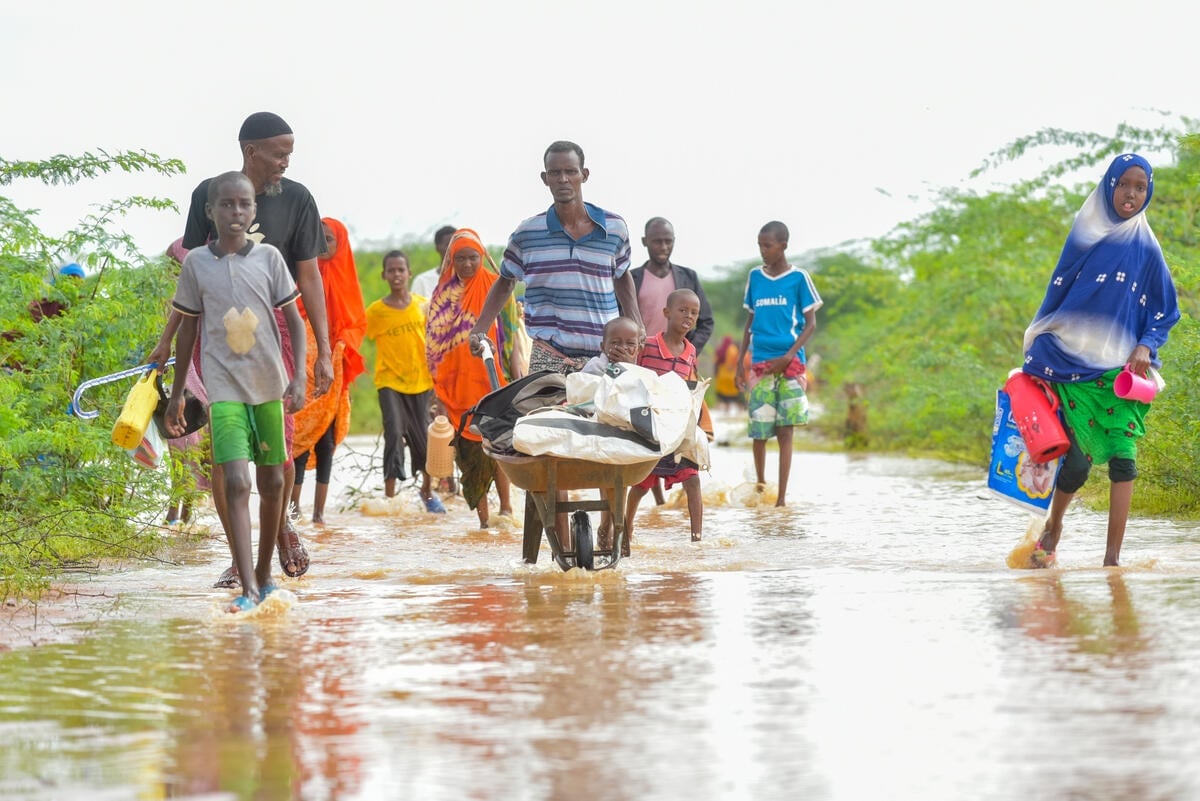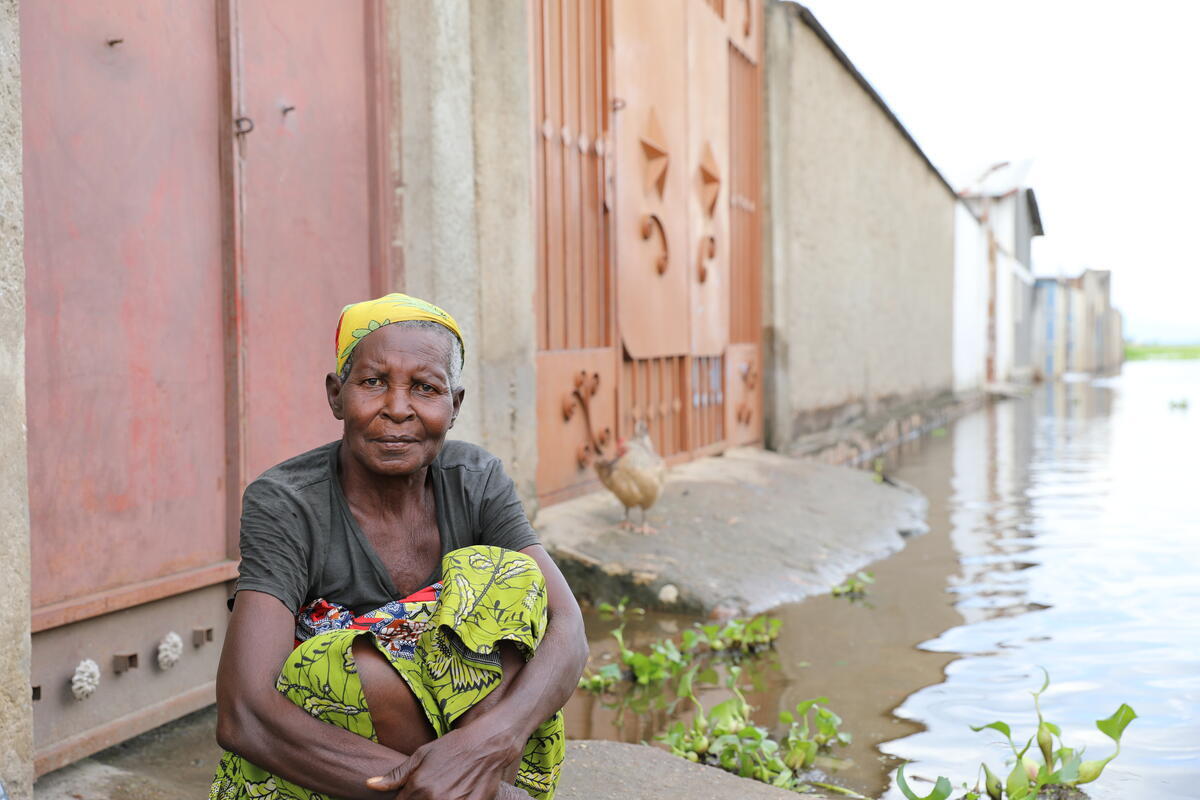Vulnerable Somalis suffer to reach Libya in search of safety and a future
Vulnerable Somalis suffer to reach Libya in search of safety and a future
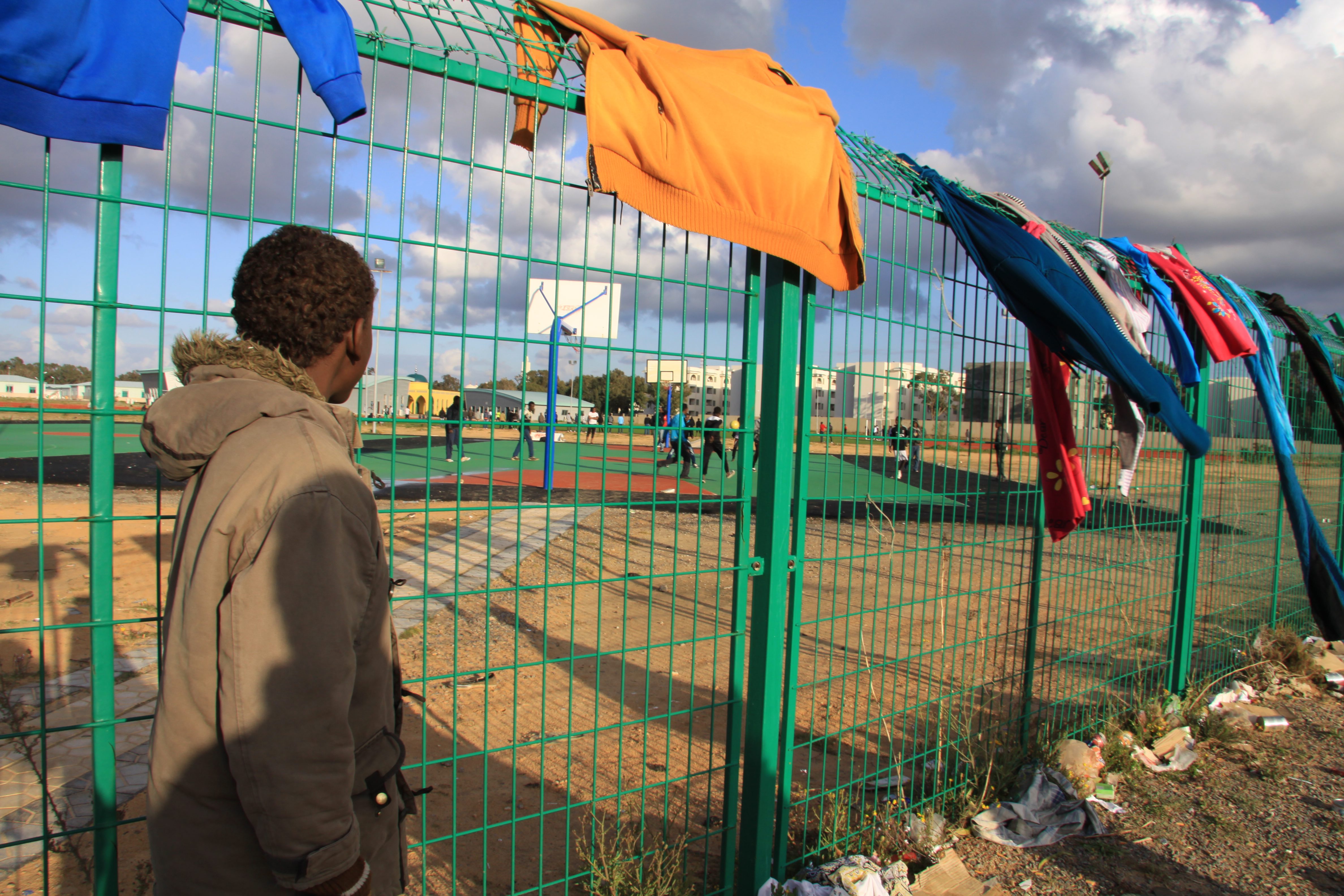
TRIPOLI, Libya, 02 April (UNHCR) - Hamda,* a mother of two, was beaten by smugglers, raped by armed men in Chad and jailed for a month in southern Libya. Twelve-year-old Abdul* ended up all on his own in a camp in Tripoli after his uncle died from malaria as they crossed the scorching Sahara.
The two Somali travellers are in Libya without valid entry papers. They share something else - a determination to reach Europe despite the ordeal they have been through. But to UNHCR, they are among the most vulnerable of the Somalis arriving once more in numbers in Libya from sub-Saharan Africa.
"I don't want to go home, I want to go around the world," Abdul told UNHCR at one of the sites where many of the Somalis and Eritreans arriving in Tripoli end up. "Every day we have new arrivals, five, 10, 20," said Mohamed Akelah, a UNHCR protection assistant. Some, like Hamda and Abdul, wish to cross the Mediterranean, but others say they would like to find work in Libya. And a considerable number of Somalis have been living in Libya for some time.
UNHCR regards all Somalis as refugees fleeing violence, but currently lacks the authorization to register them or others of concern in Libya. The refugee agency does, however, provide a wide range of assistance, especially to the most vulnerable people of concern, and also works with the authorities to ensure the release of Somalis detained as irregular migrants in Tripoli, Kufra in the south and Benghazi in the east.
In coordination with its partners, UNHCR coordinates regular distributions of relief items and food. It runs cash-for-work activities as well as programmes aimed at promoting self-sufficiency, urban integration and finding jobs for Somalis in Tripoli. And it has provided financial support to vulnerable refugees until they can be given vocational training to help them become self-sufficient.
At the Tripoli site, 25-year-old Hamda said she was grateful for the help she has received, while adding, "I don't want to go back." It's hard to imagine she's endured so much. Wrapped in modest dark clothing and the traditional hijab head covering, she showed little emotion while recounting her appalling tale.
At age 15 and the oldest of eight children, Hamda was forced to marry a man in his 40s. "We never understood each other," she said, adding that she had two children before getting divorced. She started thinking about getting away and used her dowry of US$1,500 to fund the journey to Libya via Ethiopia, Sudan and Chad.
She set off in July last year on the tough and long journey, a mix of travel by car and on foot. "It was difficult. Sometimes the drivers hit us when we asked for water," she recalled. Worse was to come as they approached Libya.
Hamda was travelling in a pick-up truck with about 30 passengers when they came across a group of about 20 men. "They were just passing and they had guns so they stopped us. There were eight young women [including herself] and two [elderly] mothers. They raped the girls," she told UNHCR.
More trouble came when they reached the first major town in south-east Libya. "In Kufra, I was jailed," Hamda said. "I was there for one month in prison." People heading from Sudan to Benghazi pass through the town, while those making their way via Chad to Tripoli go through Sabha. But hundreds have been detained in Kufra, including many in need of protection.
"I have had a difficult time since the rape. I worried about being pregnant and catching diseases. I was checked and declared clean, but I was pregnant," Hamda revealed. She said she had thought about abortion because of the shame, but decided against. "I have no option," she said, without elaborating.
Hamda made it to Tripoli in January. She said her goal still remained to help the rest of her family. That includes the two children, aged four and eight, that she left with her mother. "I want to look for work and an education," she said, echoing so many others. "I have to cross . . . I have to change the life I am in."
Abdul's story is slightly different, because he experienced the trauma of conflict and the loss of family. "War caused me to flee [Mogadishu]," said the boy, whose mother was killed in a bomb blast when he was just eight. "I think of my mother at difficult times."
His uncle also wanted to escape the hell that is Mogadishu, where hundreds of thousands have been displaced by fighting and anarchy in recent years. They left last July without telling the family. "I followed my uncle. We were afraid of the situation," Abdul told UNHCR at the site, where other Somalis from his clan keep an eye on the remarkably cheerful boy.
Tragedy struck again for Abdul in the desert. "My uncle became sick from malaria, which he caught in [the South Sudan capital of] Juba. I don't know when, but he died in the desert. It was difficult."
Other adults helped him to continue the journey to Tripoli, including, he said, two men who subsequently drowned trying to cross the Mediterranean. But while Abdul misses his father and seven siblings, he has no desire to return to Mogadishu. His goal now is to get an education, "not in Libya, but in a First World country," then find a good job and reunite with his family.
To boost its care for people like Abdul, the refugee agency plans to create a special community centre for unaccompanied minors and others with special needs arriving in Tripoli. But when UNHCR met him he was living at a site housing some 750 Somalis and Eritreans, including more than 100 single women and about 40 children. The numbers change as people leave, some to board flimsy smugglers' boats to Europe. UNHCR staff said the numbers of arrivals began growing earlier this year, a sign that migrants and refugees were once more heading north to Libya now that all-out war is over.
Emmanuel Gignac, UNHCR's representative in Libya, cited evidence of the growing traffic in January, when seven boats carrying more than 400 people, departed from Libya. One made it to Italy and one to Malta, while four ended up back in Libya. "Unfortunately, one capsized and we believe the entire group drowned. Fifteen bodies were recovered from a boat that may have carried up to 50 people," he said.
People like Abdul and Hamda think it's a risk worth taking. But the pregnant mother said that if she had known before setting out how her journey would have progressed, "I would not have come to this place."
* Names changed for protection reasons.
By Leo Dobbs in Tripoli, Libya


